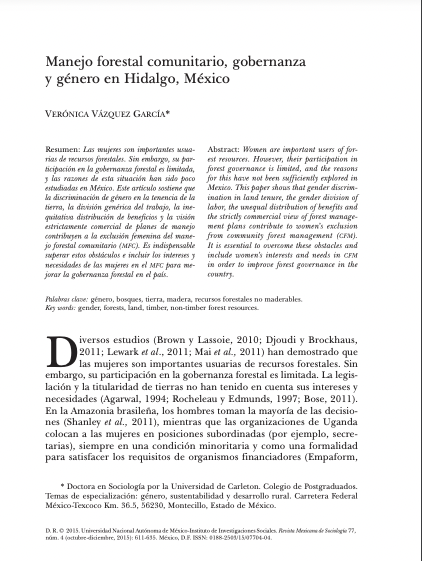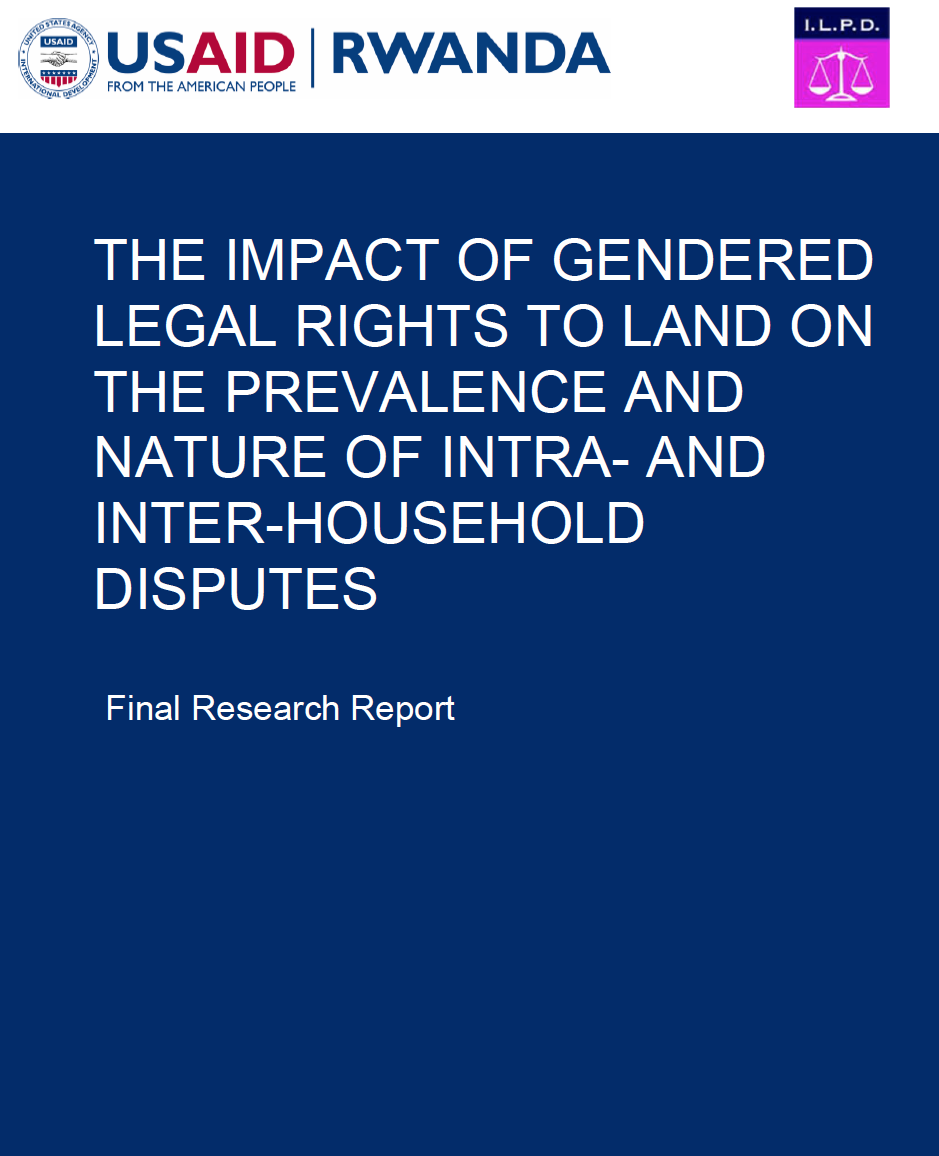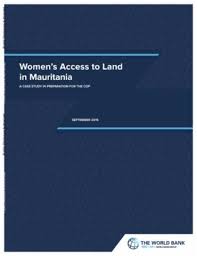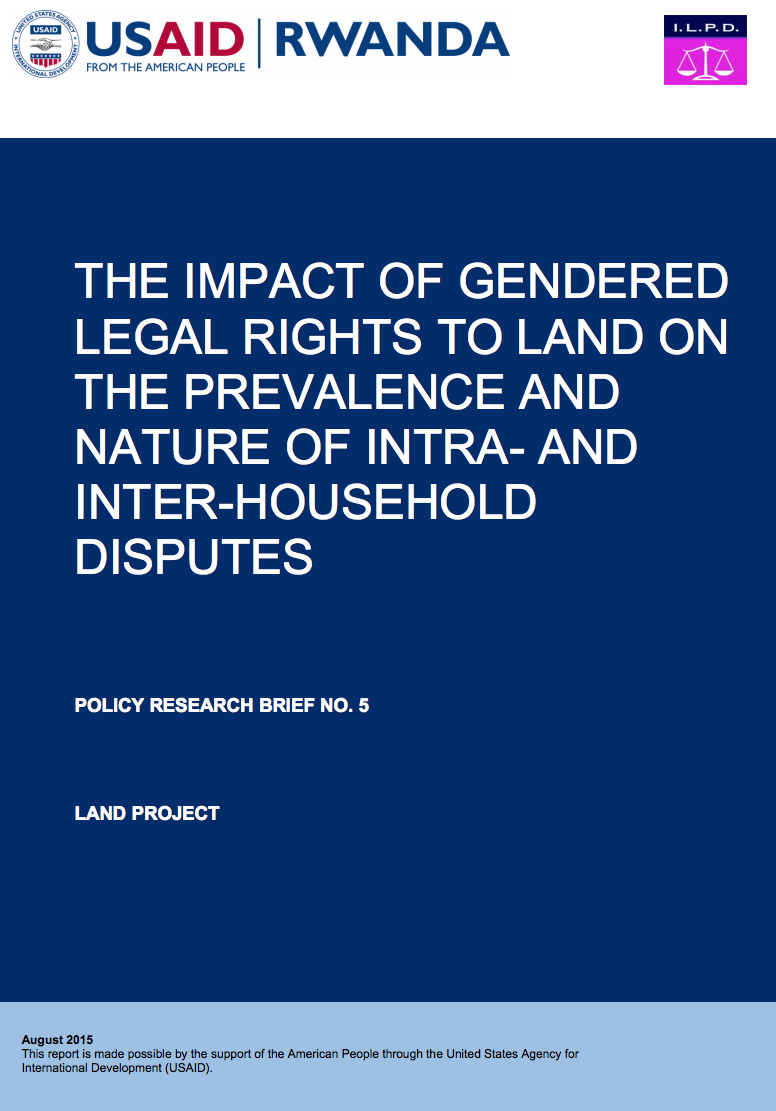Manejo forestal comunitario, gobernanza y género en Hidalgo, México
Las mujeres son importantes usuarias de recursos forestales. Sin embargo, su participación en la gobernanza forestal es limitada, y las razones de esta situación han sido poco estudiadas en México. Este artículo sostiene que la discriminación de género en la tenencia de la tierra, la división genérica del trabajo, la inequitativa distribución de beneficios y la visión estrictamente comercial de planes de manejo contribuyen a la exclusión femenina del manejo forestal comunitario (mfc).









